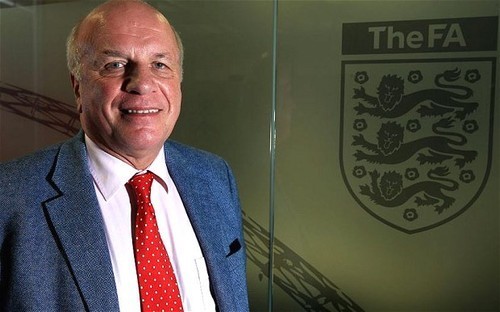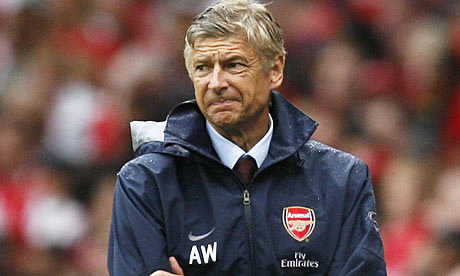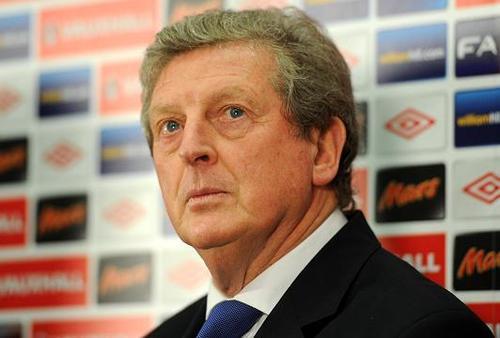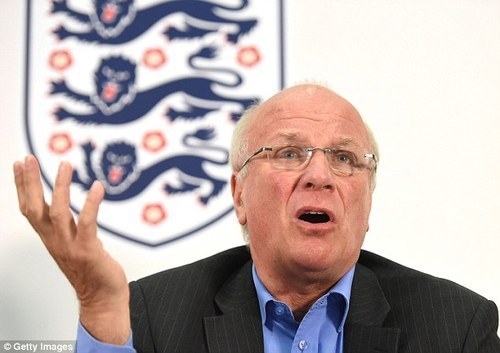Greg Dyke's 'B Team' proposal - What you need to know
A controversial plan by the FA chairman, Greg Dyke, to introduce Premier League B teams into the Football League by 2016-17 to boost England’s chances on the international stage is to be debated by football league clubs in July.
Dyke has remained firm in his assertion England should be aiming to win the 2022 World Cup, and without such radical reforms the English game will continue to deteriorate in the face of the global powerhouse, the Premier League.

Make no mistake, English football and the Premier League are not the same entity. The commission, headed by Dyke, believe the ‘blocking’ facing players aged 18 to 21 becoming first-team regulars in the top flight as the key issue affecting the development of young English talent. In the Premier League in 2012-13, only 32% of players were qualified to play for England, a stat which further diluted to 28% when confined to the top four clubs.
Essentially, they believe there isn’t a significant gateway for players to establish themselves in the Premier League. Many might argue, why hand it to them? If they’re good enough, like those who have come before them, they will flourish and show their quality.
Football isn’t as black and white as that. Some players need an opportunity and can excel with experience. Look at Ryan Shawcross (Man Utd), Steve Sidwell (Arsenal), David Bentley (Arsenal), Fraser Forster (Newcastle) and particularly Rickie Lambert (Liverpool), all of whom started their career with top six clubs (generous to Newcastle there) and had to go elsewhere before carving out established Premier League careers and apart from Sidwell, England caps.

The four key points from the commission’s proposal are:
• A new ‘League Three’ to be introduced in 2016-17, combining the top half of the Conference and 10 Premier League B sides.
• A beefed-up homegrown players’ rule requiring 13 members of the 25-man squad to have been trained in England as youngsters by 2020-21.
• A more strictly enforced work permit system that would prevent Premier League sides from having more than two non-EU players with certain international recognisable requirements, I.e number of caps etc.
• A new loan system that will allow Premier League clubs to loan up to eight players to a strategic and sole partner below the Championship.
Whilst I’m sure the proposals are far more intricate and layered than these vague outlines, there is a lot left to be desired. If there are to be ten Premier League B sides, what about the other 10? Is it not unfair on them and their youth production? There is no indication as of yet as to which 10 premier league clubs would have B teams or what the criteria would be.
Dyke cited support for the plan from Manchester City, Manchester United, Tottenham Hotspur and Stoke City. Brendan Rodgers and Roberto Martinez have both publicly backed the plan, whilst Arsene Wenger has spoken of his belief that this plan could help pay more attention to developing players at a young age.

The clubs will be asked to pay around £2m each per season to Football League and Conference sides in return for running a B team. Before Dyke gets ahead of himself though, he will have to convince two-thirds of Premier League clubs to formally back the plan if it is to succeed.
The higher number of homegrown players in the Premier League squads seems favourable in theory. I’m all for seeing as many high quality English players on the pitch as possible. The problem lies with the balance. For instance, there is absolutely no need for players like Angel Rangel (Swansea & Spain), Jose Fonte (Southampton & Portugal) and Mikel Arteta (Arsenal & Spain) who are uncapped foreigners over-the-age of 30, to be regular starter for their clubs. Why could an Englishmen not fill that void? This lends some credence to the arguments regarding more stringent work-permit measures.
However, the league cannot be swept rid of foreigners completely or hastily, as the likes of Yaya Toure, Sergio Aguero, Eden Hazard and Luis Suarez are some of the most exciting players in world football. They bring up the standard of the league and thus the wider public’s interest in it. It could also be said that playing against players of that quality is beneficial to the Englishmen cutting their teeth.
Which brings me nicely to my next point. A ‘League Three’ wouldn’t necessarily do much for the technical development of the blossoming academy products. Though a harsh introduction to lower-league football can give a player much needed resilience and heart - much like Frank Lampard claimed in his autobiography his loan spell at Swansea did early on in his career – the standard might prove counter intuitive.

In principle, I can’t see how a ‘League Three’, some four league below the Premier League, would serve as a ready-made pre-cursor to the top-flight. The Championship is considered a different world to the top division, let alone a gap of four leagues.
The last point on the commission’s doctrine suggests clubs being able to send up to eight players out on loan to a single club, below Championship level. There is logic to the idea in terms of their being a dialogue with a single club and the players growing together. For example, you wouldn’t necessarily expect Arsenal to send their emerging gems to Exeter. Not only is it geographically non-sensical, but Exeter are a team who play direct and are physically imposing, which doesn’t best prep a young Gunner for the first-team at the Emirates.
The more broad-minded fan might think that in isolation, those kind of loans can install key characteristics in green players, and that’s been the general industry practice to this point. I can see the value in sending players by the batch, but I think eight is way too much. Assuming the parent club expects their eight to be starting regularly, that’s just too much of a takeover and it steals the clubs identity. Maybe four, possibly five players is conceivable, but it’s still flirting with becoming a glorified reserve team.
It also opens itself up to tons of complaints from rival managers for those who don’t have the luxury of a parent clubs budding stars. I can already hear Neil Warnock complaining. Realistically, there’s only 20 Premier League clubs and assuming they look at League One & Two as the only leagues that could provide even a sample of the relevant experience, then that’s 28 other teams spread through those leagues who won’t enjoy the privilege of Premier League assistance. What kind of compensation will be offered on their part?

England manager Roy Hodgson has already said he will “strongly advocate” all findings and recommendations of Dykes proposal. It’s easy to see why this is such a tangible development for England, with ‘B Teams’ in Spain reaching as high as their second tier with Barcelona ‘B’ and Castilla, Real Madrid’s second string turning out in the Segunda. Interestingly, nine of Spain’s 2010 World Cup winning squad had made appearances for the two aforementioned ‘B Teams’ in their early careers.
I think it’s clear the idea has its pros and cons. The way in which it is formatted will be the essential to whether or not it will benefit the English national team. Whether that’s of detriment to the English game would probably be a very different question to a League 2 fan than a Premier League fan.
Shaun Harvey, the chief executive of the Football League, shares a similar view. He said: “It is our view that the objective of increasing the number of quality English players is laudable and while the report may not contain a solution that is acceptable at the current time, we should continue to engage with the commission to establish whether there is a solution that meets its stated objective but does not leave the Football League carrying a disproportionate or unreasonable burden.”
I admire Dyke’s candid and benevolent attempts to help the English game progress and match the leading European lights emanating from Spain and Germany. To a degree, he is right that radical reform is the only kind of change that will effect an established concept like our league pyramid, which has stood for a century.

He is also correct that the current English appearance trends in the Premier League are concerning, and falling year upon year. I would hope that these ideas can be harnessed to benefit the English game and organically aid the ability of future Three Lions stars, rather than the almost force-feeding, national team centric plans that the clubs would have to endure, not enjoy. Careful, meticulous attention must be paid to the wider effect before any plans are implemented, but I’m open minded about anything that can help a new influx of young English stars readily enter the game, and that’s all the Football League need to be.



